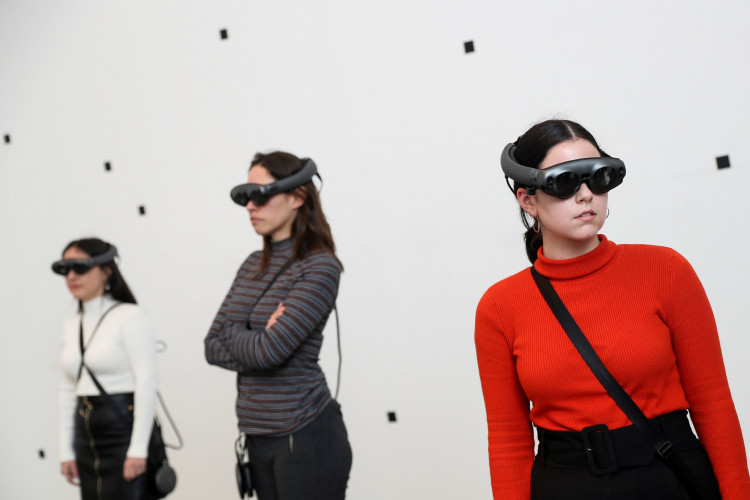Qualcomm and Microsoft announced a collaboration at this year's CES 2022 conference on Tuesday, hinting at new custom chips for future AR glasses. Future solutions based on custom processors will attempt to combine Microsoft's mixed-reality software with Qualcomm's phone-based AR systems.
Qualcomm chips are already used in Microsoft's HoloLens 2 AR headset.
However, the device is both costly and bulky. With this new partnership, Microsoft may be looking for smaller-scale items in the near future.
Qualcomm claims that the partnership is also combining software platforms. Teams will be integrated into VR and AR this year, as well as Microsoft's cross-device Microsoft Mesh VR/AR ecosystem and Windows Mixed Reality platform. But Qualcomm is working on a software framework for phones, called Snapdragon Spaces, that hopes to bridge a coming wave of AR glasses and Android phones.
Smart glasses in general are still a work in progress, but a common software platform is one of the most important requirements for these devices. That sounds like the problem that this Qualcomm collaboration is attempting to address.
According to a press release from Qualcomm, the collaboration will involve "developing custom AR chips to enable a new wave of power-efficient, lightweight AR glasses to deliver rich and immersive experiences, and plans to integrate software like Microsoft Mesh and Snapdragon Spaces XR Developer Platform."
It's unclear whether this means Microsoft's future AR glasses will have more capabilities than others in Qualcomm's planned array of products, but it does imply that a common connecting thread between future AR products is already forming. Of course, that's exactly what the "metaverse strategy" that appears to be in play everywhere right now has always required.
Qualcomm established itself as an early leader in the expanding XR field by leveraging its expertise in smartphone chip design to produce the Snapdragon XR1 and XR2 chips that currently power the majority of the leading standalone XR devices.
Because the company ostensibly already has an XR3 chip in the works, it's unclear whether the "custom chips" that will result from the collaboration will essentially mean that Microsoft has more say over what XR3 eventually looks like, or if it will get its own custom chip that will be exclusive for its own uses in devices.
Using the HoloLens 2 in more outside conditions as a stepping-stone to future smaller glasses-like devices had already been explored by Microsoft. Last year, Microsoft launched a research agreement with Niantic to see how gaming will operate on smart glasses in the future.






